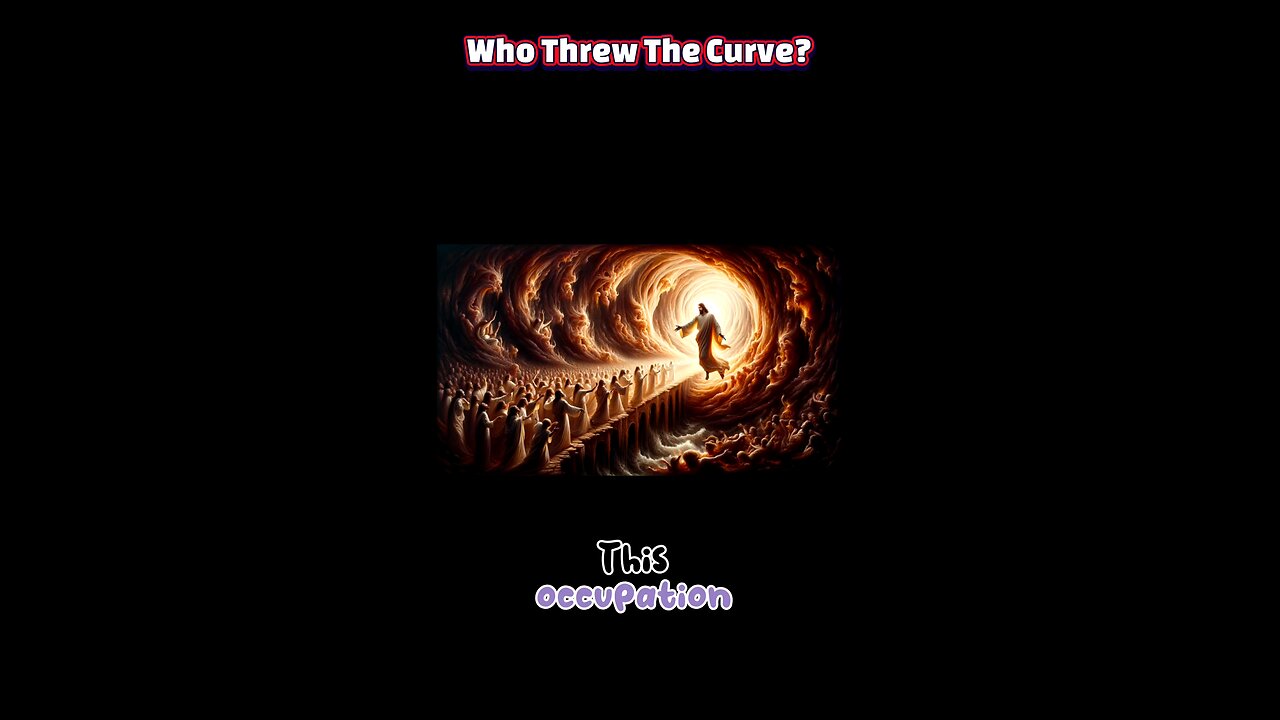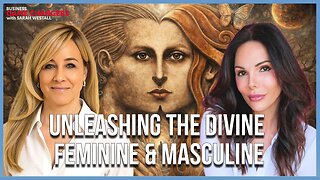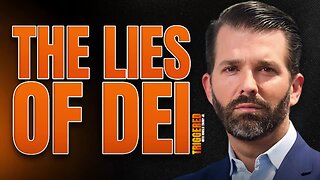Premium Only Content

The Three Occupations of God: Creation, Care, and Redemption
#GodTalks #UniverseAndYou #BeyondBelief #SpiritualJourney #EternalTruths #BigQuestions #DivineDesign #LifeAndMeaning #SacredStories #ThinkDeeper #FaithExplained #TheologyDeepDive #SpiritualWisdom #GodAndUs #CreatorSustainerRedeemer
Throughout human history, theologians, philosophers, and mystics have sought to distill the nature of God into concepts that humans can understand. One popular framework describes “The Three Occupations of God”, divine acts through which God sustains creation, interacts with humanity, and fulfills the purposes of eternity. These occupations are often framed as Creator, Sustainer, and Redeemer. They’re not discrete jobs that God rotates through like shifts on a cosmic schedule, but rather simultaneous, eternal functions that together reveal the scope of divine engagement with the universe. God as Creator In the role of Creator, God is the origin point of all existence. This occupation is more than a single event at the dawn of time, it is an ongoing act of calling things into being, from galaxies swirling in the depths of space to the smallest cell dividing under a microscope. The Creator role reflects divine imagination and purpose, where the universe is not an accident but a deliberate expression of beauty, order, and meaning. Ancient texts, from Genesis to global creation myths, point to this generative power as the first glimpse humanity has of God’s character. God as Sustainer If creation were a one‑time act, the universe might unravel without continuous care. In the occupation of Sustainer, God is seen as the ongoing source of life’s balance and order. This can be expressed through natural law, the steady pull of gravity, the reliability of seasons, as well as through the more personal experiences believers attribute to divine provision, guidance, and protection. The sustaining role suggests that God’s involvement is not distant but intimate, upholding existence moment by moment. God as Redeemer The Redeemer role addresses the reality of brokenness, whether moral, relational, or cosmic. Across spiritual traditions, redemption is the act of restoring what has been lost, healing what is damaged, and reconciling what is estranged. In Christian theology, this is often associated with the life, death, and resurrection of Jesus Christ, but the wider concept of redemption appears in countless cultures as the divine impulse to set things right. This occupation portrays God as deeply invested in the restoration of creation to its intended harmony. In the end The Three Occupations of God, Creator, Sustainer, and Redeemer, offer a framework for understanding divine action that bridges cosmic grandeur and personal experience. Together they speak of a God who originates life, preserves it, and works tirelessly to heal it. While human language can only approximate the mystery of such roles, reflecting on these occupations invites us to see the world not as a self‑running machine, but as a living story in which the Author is still writing.
-
 55:11
55:11
Sarah Westall
1 day agoHumanity Unchained: The Awakening of the Divine Feminine & Masculine w/ Dr. Brianna Ladapo
46.8K4 -
 1:42:41
1:42:41
Glenn Greenwald
12 hours agoReaction to Trump's Primetime Speech; Coldplay "Adultery" Couple Reappears for More Shame; Australia and the UK Obey Israel's Censorship Demands | SYSTEM UPDATE #560
155K96 -
 2:46:41
2:46:41
Barry Cunningham
10 hours agoBREAKING NEWS: President Trump Signs The National Defense Authorization Act | More News!
65K32 -
 43:10
43:10
Donald Trump Jr.
11 hours agoThe Days of Destructive DEI are Over, Plus Full News Coverage! | TRIGGERED Ep.301
124K91 -
 52:07
52:07
BonginoReport
11 hours agoThe Internet Picks Bongino’s FBI Replacement - Nightly Scroll w/ Hayley Caronia (Ep.200)
116K85 -
 55:30
55:30
Russell Brand
12 hours agoStay Free LIVE from AmFest — Turning Point USA - SF665
141K14 -
 1:11:26
1:11:26
Kim Iversen
13 hours agoTrump Pulls War Fake-Out…Attack on Venezuela Still Coming!?
92.3K123 -
 2:04:53
2:04:53
Redacted News
12 hours agoPutin just changed EVERYTHING with this move and NATO can't do anything | Redacted w Clayton Morris
183K157 -
 25:22
25:22
DeVory Darkins
12 hours agoTrump scores MAJOR WIN after Inflation Report as his speech sparks EPIC MELTDOWN
62K63 -
 1:01:23
1:01:23
Nick Freitas
13 hours agoLIVE at America Fest!
74.6K4